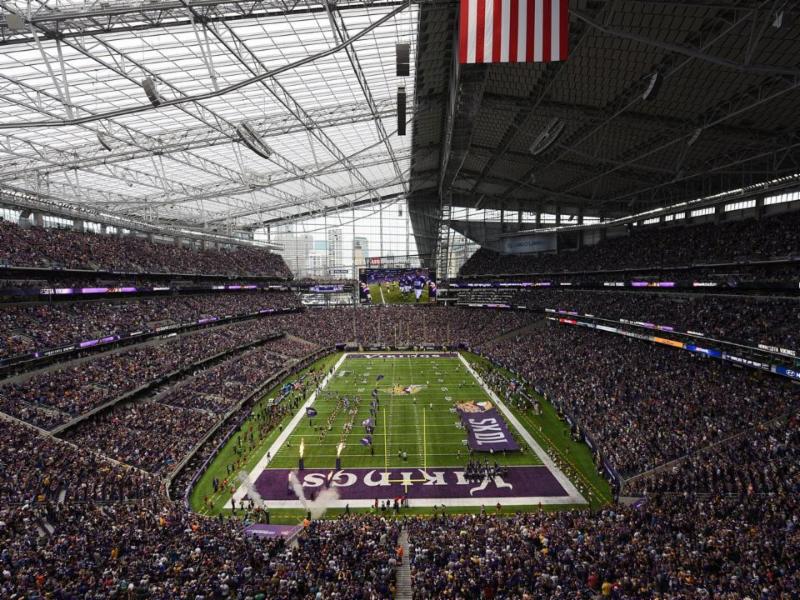How does a city land the Super Bowl? Until this May, multiple host committees representing cities attended the NFL Owners Meetings, spent millions of dollars, and delivered presentations that they hoped would prove impressive enough to surpass their competition – much in the same way that Olympic-hopeful cities launch grand, exorbitant bids to woo the International Olympic Committee.
The very first Super Bowl – the AFL-NFL World Championship Game of 1966 – saw the seeds planted, with lobbying among Los Angeles, Pasadena, Houston, and New Orleans yielding to NFL commissioner Pete Rozelle decision that the game should be hosted in his home county of L.A. Underwhelmed by the attendance the first year, Rozelle moved the championship to Miami’s Orange Bowl for larger crowds in the next two seasons before widening his scope and working to alternate between bidding NFC and AFC cities.
A little over a decade later, as then NFL vice president of special events Jim Steeg put it, “the bids were very Chamber of Commerce.” A bid from Detroit in 1979 changed matters. “[I]t had a slide a show, a video, and all this stuff up there,” Steeg recalled. “And all these owners, who you think are really tremendously sophisticated, were looking at this presentation and going on and on.” Detroit won the bid for the 1982 Super Bowl, bringing the marquee game to a cold-weather locale through sheer force of presentation.
With the ante increased, cities went all in: a $1 million offer for gameday costs from North Texas; $2 million cash from Philadelphia; individualized iPads for each owner, from Phoenix; the use of yachts for each owner, promised by South Florida; and an invitation to golf with Arnold Palmer, part of Tampa’s package. By the year 2000, Jim Steeg was estimating the cost of Super Bowl bid presentation at $200,000. A report by Bill Baker in the New Orleans Times-Picayune placed the Greater New Orleans Sports Foundation’s budget for their 2002 Super Bowl bid at $5 million. In 2009, Baker reported, New Orleans’s bid was up to $12 million. All of this for a presentation – and often a failed presentation, at that.
When Minneapolis received the nod over New Orleans in 2014 to host Super Bowl LII, two things happened: First, New Orleans, the favorite to gain the bid for its tricentennial year, was none too thrilled about spending millions of dollars for naught. Second, the Star Tribune released a 154-page list of the NFL’s “Host City Bid Specifications and Requirements.” For the first time, the public saw everything that the NFL was asking of host cities: 100 percent of all ticket revenue, 800 pounds of ice per day for practices, cost-free use of 35,000 parking spaces, the NFL Network at team hotels for one year, the installation of boosters and cell antennas to aid local cellular service, full tax exemption from city and state taxes for all tickets, 20 pages of color ads in local newspapers, 10 billboards, 10 premier buses, the use of three golf courses and two bowling alleys, and more. (The Star Tribune followed up with the requirements over Super Bowl weekend, reporting that Kelber Catering had not, as requested, relinquished its license and given the NFL all concession revenue. Nor had the team hotel for the Philadelphia Eagles, Radisson Blu Mall of America, needed to add the NFL Network to its package; it already carried the network.)
Beginning this year at the league owner meetings, the bid process will change. No longer will cities approach the NFL, multimedia presentations at the ready. The tables are turning: The NFL will approach an individual city directly – “Host City Bid Specifications and Requirements” in hand – to ask them to host the Super Bowl.
“The [new] process is really focused on identifying the really optimal destination for the Super Bowl, as opposed to a process where you may have multiple cities spending significant time and energy around a bid process,” Peter O’Reilly, the NFL’s senior vice president of events, told Sports Business Daily.
This is not to say that cities feel wholly without agency in the process. Las Vegas, with a planned $1.9 billion stadium, has targeted Super Bowl LVII in 2023. New Orleans, entering the picture once more, has its hopes high for 2024. But the main responsibility for identifying the next top Super Bowl hosting city will now be determined not by a city’s multimillion-dollar presentation, but by the NFL’s Super Bowl and Major Events Advisory Committee. It is this committee which will cull through the prospective options and present its top choice to the league’s teams for a vote on whether that hopeful city should be contacted by the NFL. The process, it is hoped, will thereby be streamlined and direct.
“This makes it less subject to the whims of a vote,” Frank Supovitz, who preceded O’Reilly as NFL senior vice president of events, added to Sports Business Daily. “It gives the NFL some ability to strategize where it goes from year to year.”
In a sense, the NFL’s solution for deciding its Super Bowl host cities has returned to something similar to Pete Rozelle’s initial model, but simpler: Find an attractive location for the Super Bowl, ensure that they can handle the requirements, and award the Super Bowl to that site. Here’s looking at you, Miami… or, perhaps, Phoenix.
Image of U.S. Bank Stadium courtesy Minnesota Vikings.
RELATED STORIES: Super Bowl Cities: Big Bids for the Big Game
This article first appeared in the weekly Football Stadium Digest newsletter. Are you a subscriber? It’s free, and you’ll see features like this before they appear on the Web. Go here to subscribe to the Football Stadium Digest newsletter.

